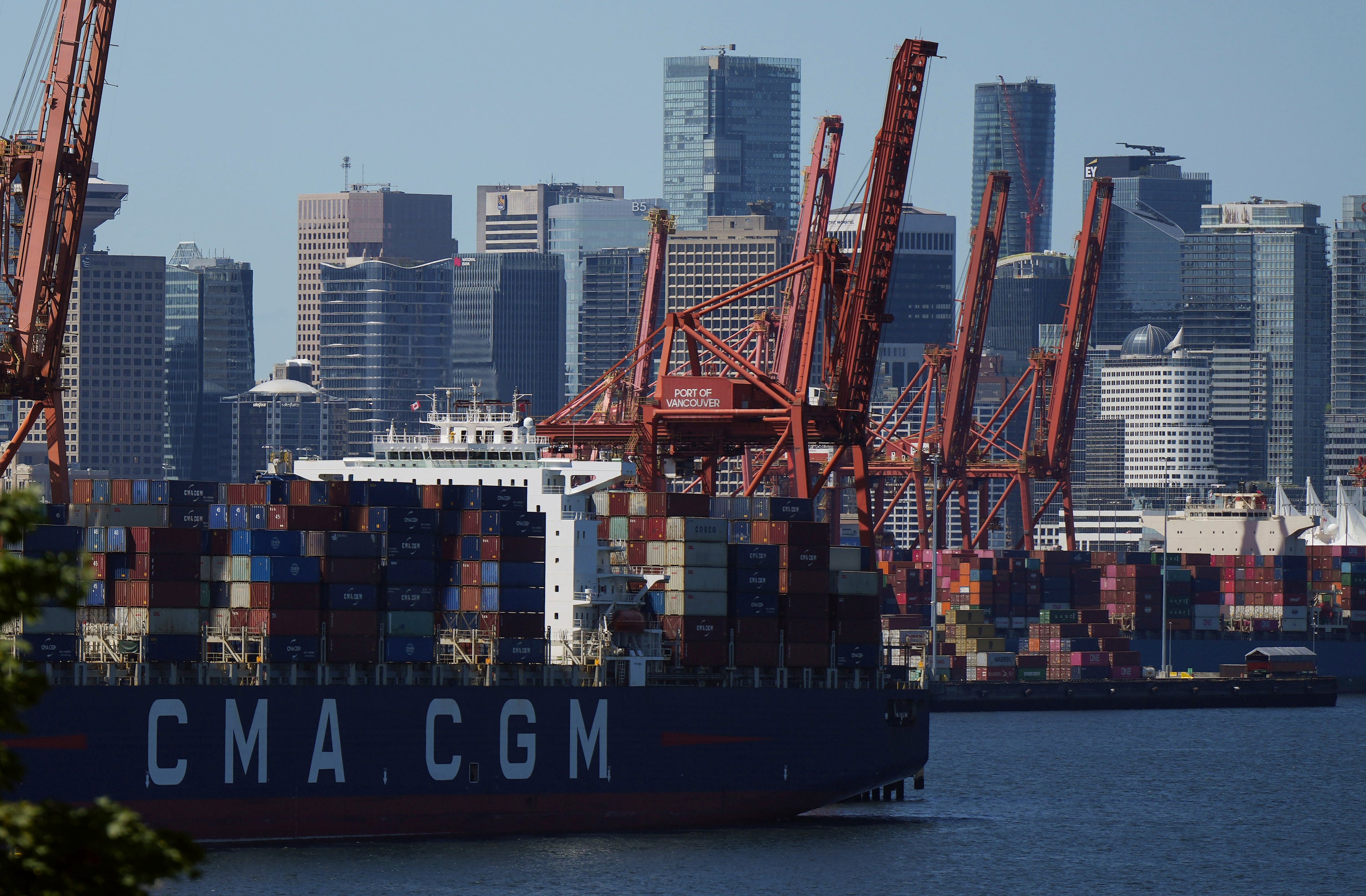Port workers in Canada's British Columbia reject contract offer leaving ports hamstrung by dispute
Port workers in the province of British Columbia have voted to reject a mediated contract offer meant to end a labor dispute that stopped goods moving in and out of harbors, including at Canada’s busiest port in Vancouver

Your support helps us to tell the story
From reproductive rights to climate change to Big Tech, The Independent is on the ground when the story is developing. Whether it's investigating the financials of Elon Musk's pro-Trump PAC or producing our latest documentary, 'The A Word', which shines a light on the American women fighting for reproductive rights, we know how important it is to parse out the facts from the messaging.
At such a critical moment in US history, we need reporters on the ground. Your donation allows us to keep sending journalists to speak to both sides of the story.
The Independent is trusted by Americans across the entire political spectrum. And unlike many other quality news outlets, we choose not to lock Americans out of our reporting and analysis with paywalls. We believe quality journalism should be available to everyone, paid for by those who can afford it.
Your support makes all the difference.Port workers in British Columbia have rejected a mediated contract offer meant to end a labor dispute that stopped goods from moving in and out of harbors, including at Canada’s busiest port in Vancouver.
In a letter posted on the union’s website late Friday, International Longshore and Warehouse Union Canada President Rob Ashton said workers in the province are now calling on their employers to “come to the table” and negotiate directly, instead of doing so through the BC Maritime Employers Association.
The vote to reject the contract raises the prospect of back-to-work legislation to end the uncertainty at more than 30 port terminals and other sites.
The four-year agreement between the union and maritime employers went to a vote of about 7,400 workers on Thursday and Friday, after union leaders presented the deal to local chapters on Tuesday.
The deal worked out with federal mediators had put a temporary halt to a 13-day strike that had commenced July 1, but its fate see-sawed wildly as the union leadership then rejected it and tried to go back to picket lines.
When that was deemed illegal by the Canada Industrial Relations Board, the union submitted a new 72-hour strike notice, only to withdraw it hours later.
On July 20, the union announced it was recommending the deal and would put it to a full membership vote.
Its failure will give impetus to calls for the federal government to bring in back-to-work legislation, that came earlier from industry groups and politicians, including Alberta Premier Danielle Smith.
The earlier job action was serious enough that Prime Minister Justin Trudeau convened the government’s incident response group to discuss the matter, an occurrence typically reserved for moments of national crisis.
Subscribe to Independent Premium to bookmark this article
Want to bookmark your favourite articles and stories to read or reference later? Start your Independent Premium subscription today.